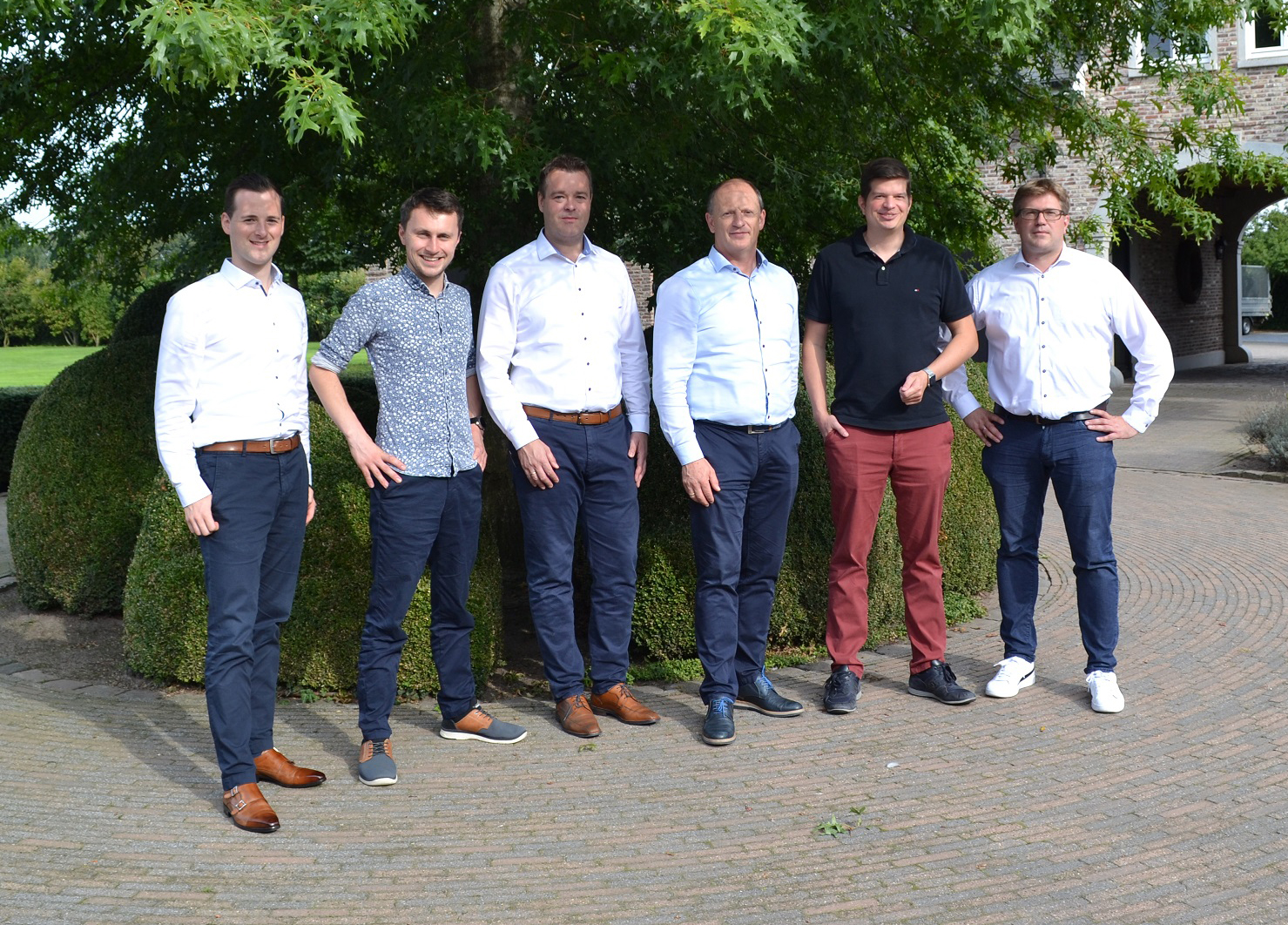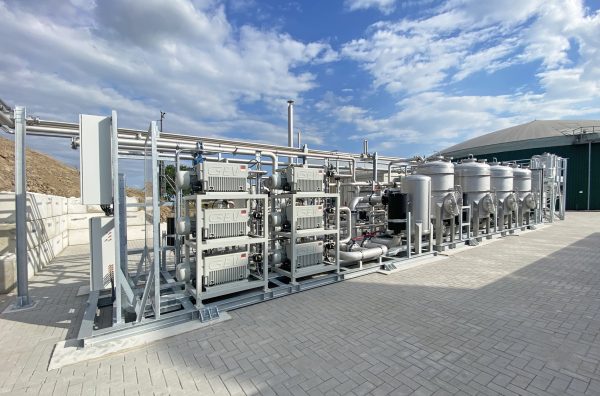Bio-LNG supply contract for “Green Line Liquid
SILENCE Agriculture and Q1 Energy conclude long-term purchase agreement
On Monday, September 6, 2021, a Bio-LNG supply contract was signed in Lüsche, Lower Saxony, between Q1 Energie AG and Ersten Bioenergie Darchau GmbH & Co. KG (subsidiary of Ruhe Agrar GmbH) for the Bio-LNG (“Bio Liquefied Natural Gas”) produced in Darchau in the district of Lüneburg from summer 2022. “The contract secures the purchase of the biofuel for 8 years and is worth tens of millions over the period,” said Thomas Rolfes, managing director of the Ruhe Group of Companies. Q1 takes off the fuel and markets it for road haulage. This ensures long-term off-take for the bio-LNG produced.

From left: Maximilian Ruhe (Ruhe Biogas Service GmbH), Henning Dicks (agriportance), Thomas Rolfes and Kunibert Ruhe (Ruhe Agrar GmbH), Frederick Beckmann and Martin Hoffschröer (Q1 Energie AG).
Q1 is driver in LNG market
For the energy and service station company Q1 Energie AG from Osnabrück, this is the first contract of this kind. In the future, a truck will pick up the liquefied gas produced in Darchau once a week and deliver it to filling stations in Lower Saxony. Q1, as one of the pioneers in the LNG sector, already operates 2 LNG refueling stations in Osnabrück and Koblenz in addition to 230 roadside refueling stations in Germany. “This year, we will open additional locations in Wittlich and Ulmen and continue to expand our network,” said Martin Hoffschröer, Head of Sustainable Energies at Q1 Energie AG. “Bio-LNG represents an essential building block for the decarbonization of our product portfolio and already offers the possibility of making heavy-duty transport climate-neutral or, in the best case, even climate-positive” emphasized Frederick Beckmann, CEO of Q1 Energie AG.
agriportance efficient service provider and intermediary
The young company agriportance from Münster accompanies the bio-LNG project of Ruhe Agrar. It provided a broad range of consulting services on greenhouse gas accounting and a custom-developed tool for pre-collaboration greenhouse gas accounting. “The close monitoring of the sustainability certification of the future organic LNG producer is also very significant,” said Henning Dicks, managing director of agriportance. A low greenhouse gas value, for example, through the selection of suitable substrates, enables a significantly improved price for the bio-LNG. Thus, the more climate-friendly the organic LNG, the better the product price for the producer. Certification is performed annually by a RED-certified environmental auditor. According to Henning Dicks, substrates such as liquid manure, dung or other residual materials are particularly economical. In Darchau, the biofuel is therefore produced purely from cattle manure, solid manure and residual grass from the Elbe dikes. The young company accompanied the successful conclusion of the contract with Q1 Energie AG, by drafting the contract and bringing the two parties together. agriportance plays a crucial role in the mediation of organic LNG. It also handles the sale of the resulting greenhouse gas quota to various customers in the transport sector.
Green Line Liquid as a follow-up concept for biogas plants
The biogas upgrading and liquefaction technology used for the project is a product of RUHE Biogas Service (a company of the Ruhe Group) and is sold under the “Green Line Liquid” brand. “The decentrally produced fuel not only contributes to CO2 savings in the transport sector, but is also a successor model for the conversion of biogas into electricity under the EEG,” emphasized Kunibert Ruhe. “This can ensure the economic operation of biogas plants and thus the benefits of the renewable energy source.” “Ruhe Biogas Service’s ambition is to make it as easy as possible for biogas producers to switch from electricity production to biofuel production,” said Maximilian Ruhe, managing director of Ruhe Biogas Service GmbH. This is because the company doesn´t only sell technology, but also offers an operator model in which the company finances the technology and places it on the farm and buys the raw gas from operators at fair conditions. Further plants are already in the planning stage. Both from Ruhe Agrar’s own biogas portfolio and from other farmers with expiring EEG compensation. Through technology, collaboration with Q1 and agriportance, the Ruhe Group of Companies aims to position itself as a leader in the biofuels market.
Biogas project contributes to climate targets
The transport sector is the largest energy consumer in Germany and the third-largest sector after the energy industry in terms of greenhouse gas emissions generation. As part of the Green Line Liquid project, locally produced biogas is to be upgraded and refined into the climate-friendly fuel Bio-LNG from summer 2022. There are already plants around the world that liquefy hundreds of tons of conventional natural gas per hour to use it as fuel for road freight transport, for example. By applying the technology in the biogas sector, the project contributes to achieving the climate targets of the German government. As of summer 2022, approximately 2.3t of bio-LNG will be produced per day. This amount of alternative biofuel is equivalent to about 3,500l of fossil diesel. Per year, this means an equivalent diesel volume of about 1.3 million liters or annual CO2 savings of 6 – 7 million kg CO2. The project is subsidized by 55% from the European Regional Development Fund (ERDF) within the framework of the directive for the granting of subsidies to improve the supply of alternative fuels in Lower Saxony.
About RUHE Biogas
The RUHE group of companies is a family business with a strong agricultural background. From its headquarters in Lüsche, Lower Saxony, it manages farms in Lower Saxony, Mecklenburg-Western Pomerania and Brandenburg and operates biogas plants, four of them with an electrical output of 2.74 megawatts.
With 20+ years of operational experience, modern working methods and a motivated team, RUHE Biogas is your partner for the maintenance, optimization and future of biogas plants with liquefaction concepts.

